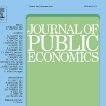
Daniel Overbeck
@DOverbeckEcon
Followers
217
Following
160
Media
9
Statuses
45
PhD Student in Economics @GESSuniMannheim | Interested in Public and Development Economics https://t.co/F9pL7q4Cfh
Mannheim
Joined September 2021
A bit delayed, but I am extremely happy to share that this fall, I will be joining @NUSingapore as an Assistant Professor of Economics at @LKYSch. I am thankful and excited for what's to come!
0
0
12
Looking forward to be part of this interesting event!
📢 Tomorrow, T4G, @IGC_CtW & @IGC_Zambia are hosting the Taxing Smarter—a conference on evidence, tech & data in Zambia’s tax system. As aid becomes unpredictable, domestic revenue has never mattered more. 🇿🇲💡 #TaxForGrowth #TaxingSmarter
https://t.co/Je1E35ljIU
0
0
1
🚨 We’re hiring in Lusaka! Join the Zambia Evidence Lab as a Lab Economist – a pioneering partnership with Zambia’s Ministry of Finance. Lead data-driven policy work across key sectors 📍 Lusaka | 🗓️ Apply by 15 June 2025 🔗 https://t.co/rEaXY4dVGM
#PolicyImpact @IGC_Zambia
0
7
7
Excited that our paper is featured in the first edition of the new @Tax4Growth webinar! We will present and discuss the paper among an interesting panel with policy makers and researchers. Join!
Tax for Growth launches Tax Talks: Seminars with Substance! 🚀 Our first webinar is on the 3rd of March featuring @DOverbeckEcon, @chenaimukumba (@TaxJusticeAfric ) & Eliya Lungu (@ZambiaRevenue ) discussing turnover taxes. Register: https://t.co/tX6GNp9hjT
#Economics
1
1
4
Just published! "Place-based policies, structural change and female labor: Evidence from India’s Special Economic Zones" By Johannes Gallé (@MCC_Berlin), Daniel Overbeck (Mannheim), Nadine Riedel (@uni_muenster), Tobias Seidel (@unidue)
1
27
103
The @The_IGC / @Tax4Growth just published a non-technical blog post on my #EconJobMarket paper! Check it out, as well as all the other great work supported by IGC!
Why do firms disclose greater revenue when it could result in higher taxes? A new study from #Zambia shows that small #firms bargain with #tax collectors, possibly reporting above thresholds despite apparent disadvantages ⤵️ @DOverbeckEcon @Tax4Growth
0
1
7
🆕 Place-based policy in India: How Special Economic Zones promoted structural change and women's employment @cepr_org STEG research by @johannes_galle @ruhrunibochum, @DOverbeckEcon @GESSuniMannheim, @NadineRiedel2 @InwireW & Tobias Seidel @unidue : https://t.co/rcyRCWQ5wV
voxdev.org
Little is known about the contribution of place-based policies in promoting economic development in emerging and developing countries. Through what channels do these policies, such as Special...
0
10
27
This paper contributes to our understanding of how small firms navigate tax systems in environments of low enforcement. It's a step toward understanding the role of informal institutions in shaping formal governance. #Taxation #Development
0
0
0
We also show that competing explanations like audit probability, frictions or mistakes are unlikely to explain the observed behavior. This provides new insights into how informal institutions can affect tax compliance in low-income countries with limited state capacity.
1
0
0
The model explains why bargaining leads to round-number outcomes and why firms bunch both above and below tax thresholds—because the tax authority's constraints (e.g., notches in the tax schedule) shape the set of feasible bargaining outcomes.
1
0
0
To explain these findings, we extend the classic Allingham and Sandmo (1972) model of tax evasion to incorporate bargaining. We show that, when state capacity is low, both taxpayers and tax authorities can benefit from negotiating tax payments instead of relying on audits.
1
0
0
But how do these patterns make sense? We conducted a survey of 517 firms. About half of respondents reported discussing their tax payments with tax officials before filing, often negotiating the amount to be paid. In other words: tax payments are the outcome of bargaining.
1
0
1
Second, we find sharp bunching at "round number" tax liabilities (e.g., taxes in multiples of 50, or 100), not just turnover amounts. This isn’t due to tax adjustments by the authority—it’s how firms report their earnings. It suggests a preference for round payments, not turnover
1
0
1
First, we observe a puzzling pattern: firms bunch above tax schedule discontinuities, meaning they report turnovers just above tax thresholds, even when it's not in their financial interest (they would be better off below the threshold) -- contradicting standard economic theory.
1
0
1
The setting me and my co-author Eliya Lungu study is Zambia, a lower-middle-income country with a growing need for revenue generation. We focus on small firms—who make up the bulk of taxpayers and find surprising patterns in the administrative data.
0
0
1
Informal institutions, like local networks and informal bargaining, play a crucial role in governance in lower income countries. But how do these informal institutions shape tax compliance? My job market paper explores this question. #EconJMP #EconTwitter
3
25
68
This paper contributes to our understanding of how small firms navigate tax systems in environments of low enforcement. It's a step toward understanding the role of informal institutions in shaping formal governance. #Taxation #Development
0
0
0
We also show that competing explanations like audit probability, frictions or mistakes are unlikely to explain the observed behavior. This provides new insights into how informal institutions can affect tax compliance in low-income countries with limited state capacity.
1
0
0
The model explains why bargaining leads to round-number outcomes and why firms bunch both above and below tax thresholds—because the tax authority's constraints (e.g., notches in the tax schedule) shape the set of feasible bargaining outcomes.
1
0
0
To explain these findings, we extend the classic Allingham and Sandmo (1972) model of tax evasion to incorporate bargaining. We show that, when state capacity is low, both taxpayers and tax authorities can benefit from negotiating tax payments instead of relying on audits.
1
0
0



